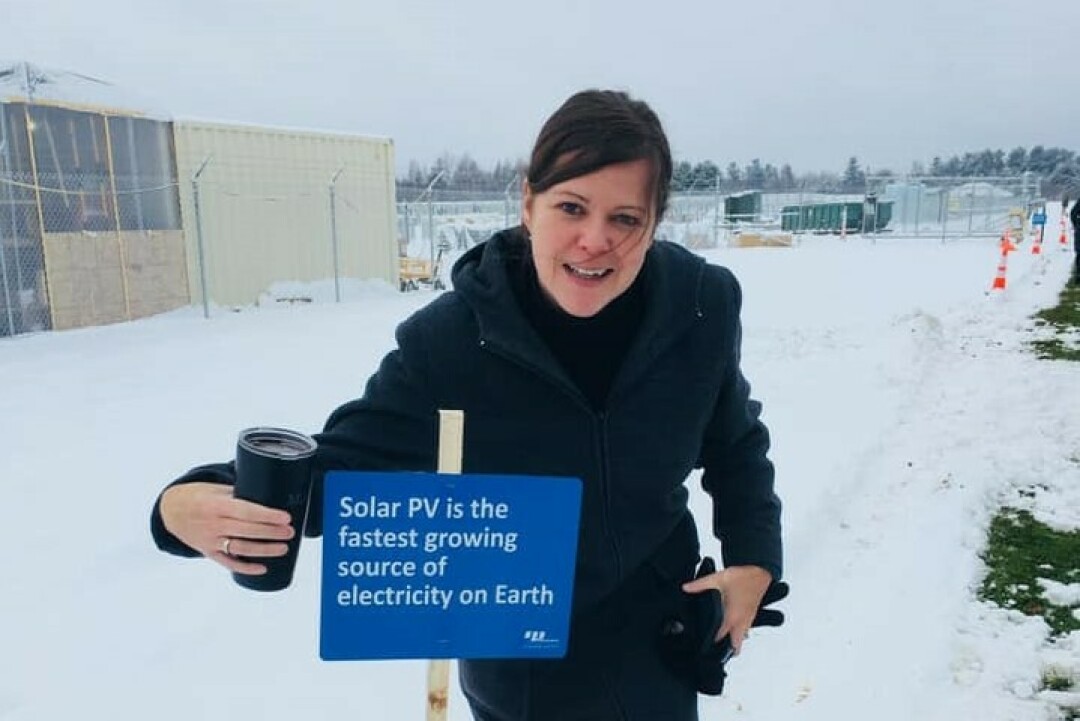RACER Grant empowers city investigations into important climate questions

City of Duluth Sustainability Officer Mindy Granley. Photo courtesy of the University of Minnesota Institute on the Environment, where she spent a decade before joining the city.
The Northland has witnessed several major weather events in the past decade.
For instance, the flood of 2012 drenched the city in 5-10 inches of rainfall, washing out many roads in what became a historic state of emergency.
Or, the 2016 storm devastated the city by downing trees, leaving neighborhoods without power and bringing businesses and even many emergency services to a screeching halt until power, order and safety was restored.
Unfortunately, the planet’s rising temperatures increase both the likelihood, and the magnitude, of such crises in the future.
In an effort to plan for such contingencies, the city of Duluth was recently awarded approximately $1 million dollars from the Renewables Advancing Community Energy Resilience (RACER) fund, a U.S. Department of Energy Solar Technologies Office (SETO) grant that will propel investigations into city power grid disruptions, and their prevention and mitigation.
Using RACER, the city hopes to gain valuable knowledge into how to stay afloat during major weather events such as intense rainstorms, flooding, wind and heavy snowfall.
“What happens when the power is out during these really extreme cold spells? Is there a role at city buildings or within city utilities to help maybe shore up services or provide areas of heat, or resilience hubs or something?” asked City of Duluth Sustainability Officer Mindy Granley.
Mindy’s questions are but some of those the city hopes to answer using the money awarded from RACER. During the course of two years, the city will investigate what communities require at times when the power grid is disrupted, and how solar grids can be deployed in order to make the city’s energy grid more resilient.
Collaborating with local groups such as Ecolibrium3, Grid Catalyst, the University of Minnesota and UMD, the city will investigate what communities around the Northland need to stay up and running amidst meteorological crises.
“There will be some sort of community canvassing in neighborhoods with the most amount of vulnerable people,” Granley said. “The contractual dollars that we have will allow us to hire folks to do some canvassing and host some forums for input.”
One key to the RACER project is establishing communications between groups, organizations and individuals. Together, the city hopes to establish a more concrete understanding of the implications of major weather events on the lived lives of its citizens.
“I want to engage folks who have already been working in emergency response. I want to learn from the lived experience of both residents and also city staff who have responded and been part of those emergencies.... What I hope is that, through this process, we get that collective knowledge of what the disruptions are and what disruptions might be expected.”